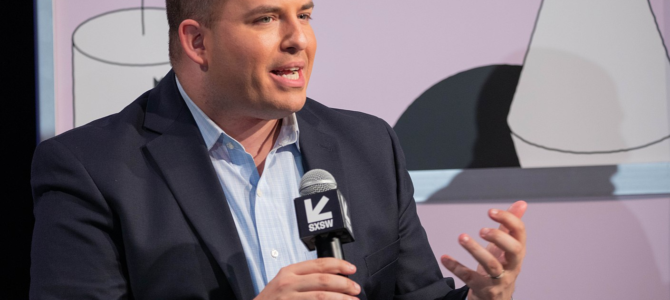
In the last week, a 99-year-old World War II veteran from Yorkshire, England, raised mmore than 31 million British pounds for the National Health Service by walking around his yard in a challenge that then went viral. He is a member of a certain generation regularly taught that when the bugle calls, one should rally around the tattered banner regardless of who is leading the nation to battle.
This sentiment was once ingrained in the bloodstream of every civic-minded individual all over the world: There might be severe differences with your fellow citizens at times of peace, but in strife, your individual self is secondary to the flags of your forefathers.
This gentleman, Cpt. Thomas Moore, wanted to help his country by walking 100 laps around his yard, a genuine challenge for someone of his advanced years, to raise 1,000 pounds. Instead he rightfully turned into a celebrity and raised more than 31 million pounds for his country and countrymen, many of whom probably hate the flag colors he once fought for.
Meanwhile, CNN host Brian Stelter wept. Faced with the unbearable agony of being an elitist journalist, Stelter let the taps flow. “Truth is I hit a wall. Gutted by the death toll … I crawled in bed and cried for our pre-pandemic lives. I think those tears had been waiting a month to escape,” he tweeted.
Mocked on Twitter, he courageously fought back, calling masculinity performative. It is no wonder he thinks that. Others soon joined in, calling him bravely vulnerable and thanking him. Still others shared their sob stories in solidarity. It was a scene straight out of a sherry-fueled gathering of Victorian grandmas in a village bridge club in England from late 1890s.
Stelter isn’t the only one. Millionaire Sam Smith, the singer of the world’s worst James Bond theme song who goes by the pronoun “they” to denote his nonbinary status, also had a meltdown from “anxiety” and bravely showcased it through Instagram. Another Instagram influencer, who posed as a nurse only to performatively quit due to anxiety, was also hailed as brave and had her story in CBS before it was discovered to be fraudulent.
This Vulnerability Is Performative
This brings us to the main question. Ignore for a moment that most of these people are pampered, privileged, and in the case of Stelter and Smith, rich. It’s absurd to contemplate that cultural elites working on their laptops in their homes are crying their hearts out due to “anxiety” and are a meme, while Americans across the country are protesting on the streets for their jobs lost.
This is not storming the beaches of Normandy. This is not going to the moon not knowing if one would return alive. This is not braving arrows or risking malaria, scurvy, and stormy, abyssal death in a wooden boat to discover uncharted lands. This is quite literally sitting on one’s dignified derriere.
How fragile and pathetic a society should be that a section of the population is deemed courageous for their vulnerability? In what bizarro universe is being constitutionally weak worthy of respect and adulation? Whatever happened to the conservative concepts of fortitude and stoicism, “chin up” and “keep calm and carry on”?
Of course, the questions are rhetorical. We all know what happened. Most Americans and British — or most people anywhere — are not like Stelter and Smith or that fraud nurse, which is why these specimens are dragged, mocked, and ridiculed on Twitter, and rightfully so.
Emotional weakness is not a virtue, and anyone displaying weakness in public while demanding respect is still rightly considered an oddity by normal people. Theories of “solidarity” for some reason never work in nature, which is far more Hobbesian. These ideas of “fragility and vulnerability” are all elite-driven fads — the weaker you are, the more you’re considered worthy of emulation in sophisticated circles. Most of these actions are therefore performative.
Bravery Is Sacrificial, Not Weak
Unfortunately, there are real-world costs to all of these issues. Children are growing up increasingly anxious and fragile because they are not taught to toughen up in face of adversity, instead having the baggage of their middle-class parents dumped on them. Children emulate adults, and if they are rewarded for their anxiety, they naturally become more anxious.
The whole edifice of an ultra-feminized society and the cries of toxic masculinity have driven a political polarization, wherein masculine men overwhelmingly are the underclass where there are battles of sexual equality in upper-class, cushy jobs. But the lower strata — from tree-lopping, to coal mining, to trash collecting — remains overwhelmingly male.
There’s no scope of displaying emotional fragility for them, as there is in Google’s innovation meetings, for example. This division is evident in voting patterns and will only increase in the future. A vast underclass of Morlocks ruled by a tiny set of Eloi, demanding respect for their “brave vulnerability” as stoicism, is considered taboo in social circles.
It wasn’t like this and shouldn’t be — and not only because it is unnatural and elite-driven. Gallantry and bravery are fundamentally sacrificial. It is not a question of sexuality, race, or sex. It is, however, a question of stoicism and fortitude. An overwhelming number of both men and women can display it. And there are those among the elites who do not.
Royal Navy Cpt. Larry Oates calmly walked away from his expedition camp in the South Pole to his certain death to save his comrades from rationing food 100 years ago. It is William Ernest Henley’s “Invictus.” A Swedish princess quietly served in a hospital. It is the story of thousands of calm and stoic American soldiers, Australian firefighters, Indian health service men, and Italian nurses on the frontlines. And it is the story of Cpt. Tom Moore, one of the last living from a generation that learned to chin-up and look adversity in the eye for God, flag, and country.
Whatever emotions — sympathy? pity? — are attached to weakness and fragility, respect will never be one of them. Humans are not hardwired to respect displays of weakness, mental or physical, something Brian Stelter and Sam Smith are realizing the hard way.









